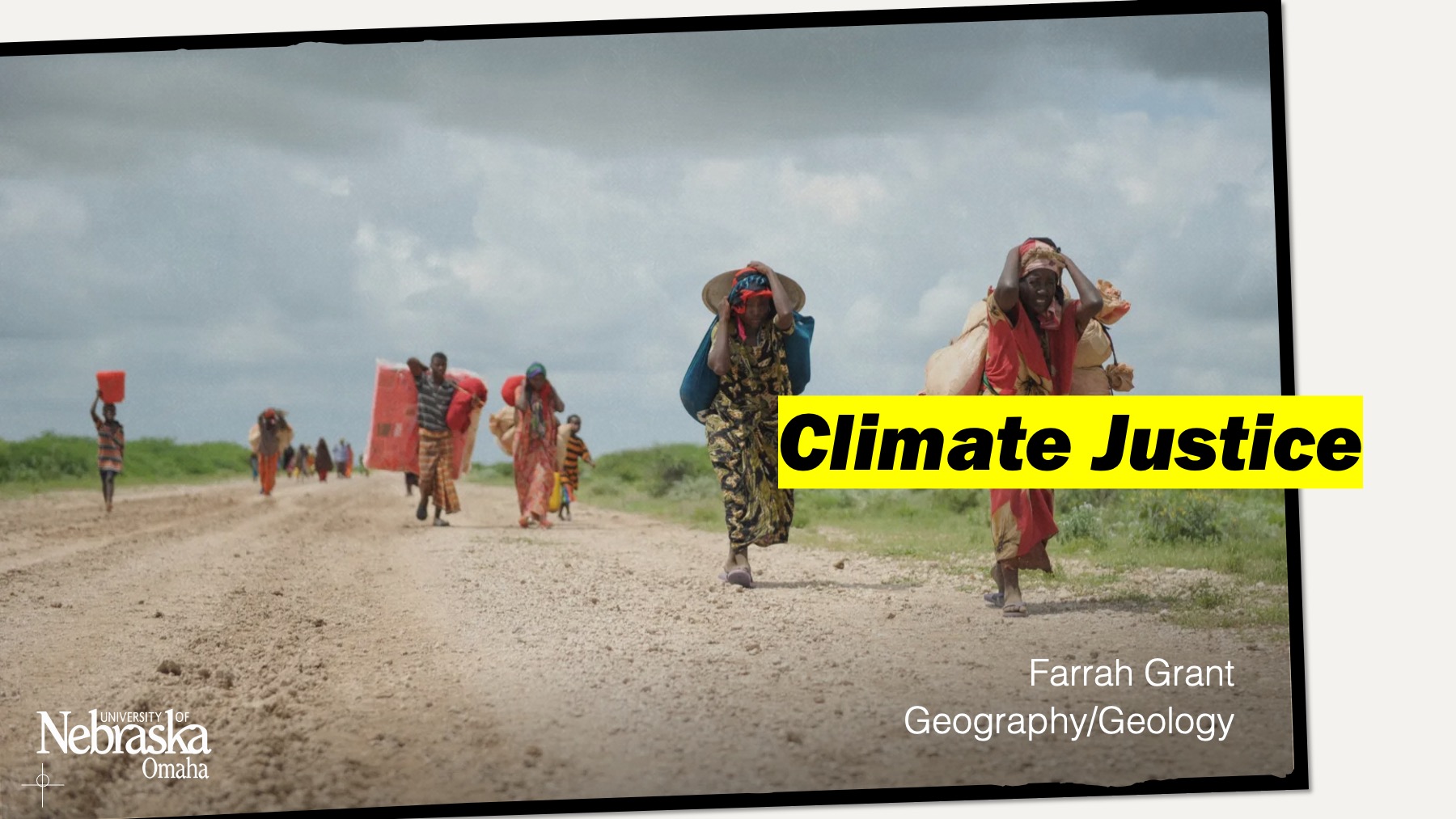Distance Learning Modules
The following links lead to lectures and questions related to climate change topics:
Soil Carbon and Climate Change
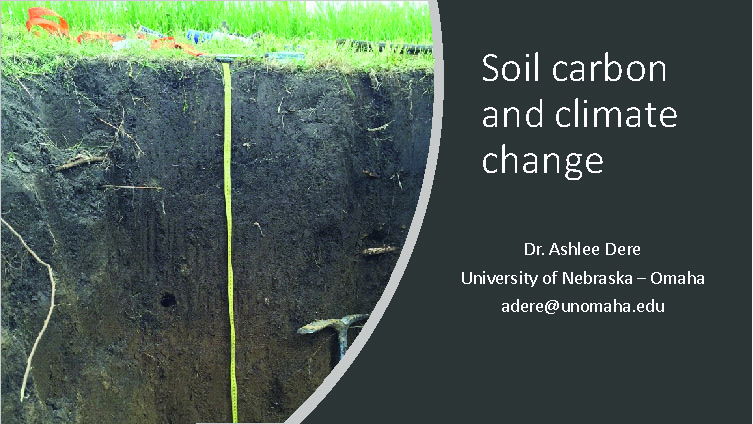
This presentation explores how soil carbon impacts climate change, including the role of soils in the global carbon cycle and how carbon is stored in soils.
Soils and the Critical Zone
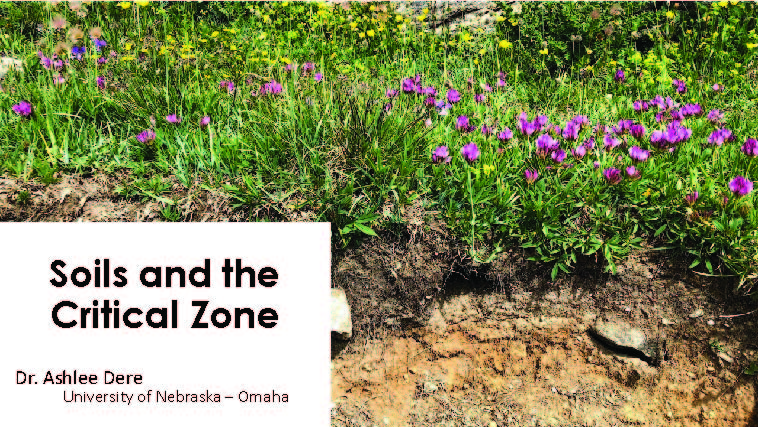
This presentation introduces the concept of the Critical Zone and the role that soil plays in regulating ecosystem services at the Earth’s surface. Some of the methods used to measure soils in the Critical Zone are discussed, as well as approaches for student-driven inquiry related to studies of the Critical Zone.
Systems Thinking & Climate Change
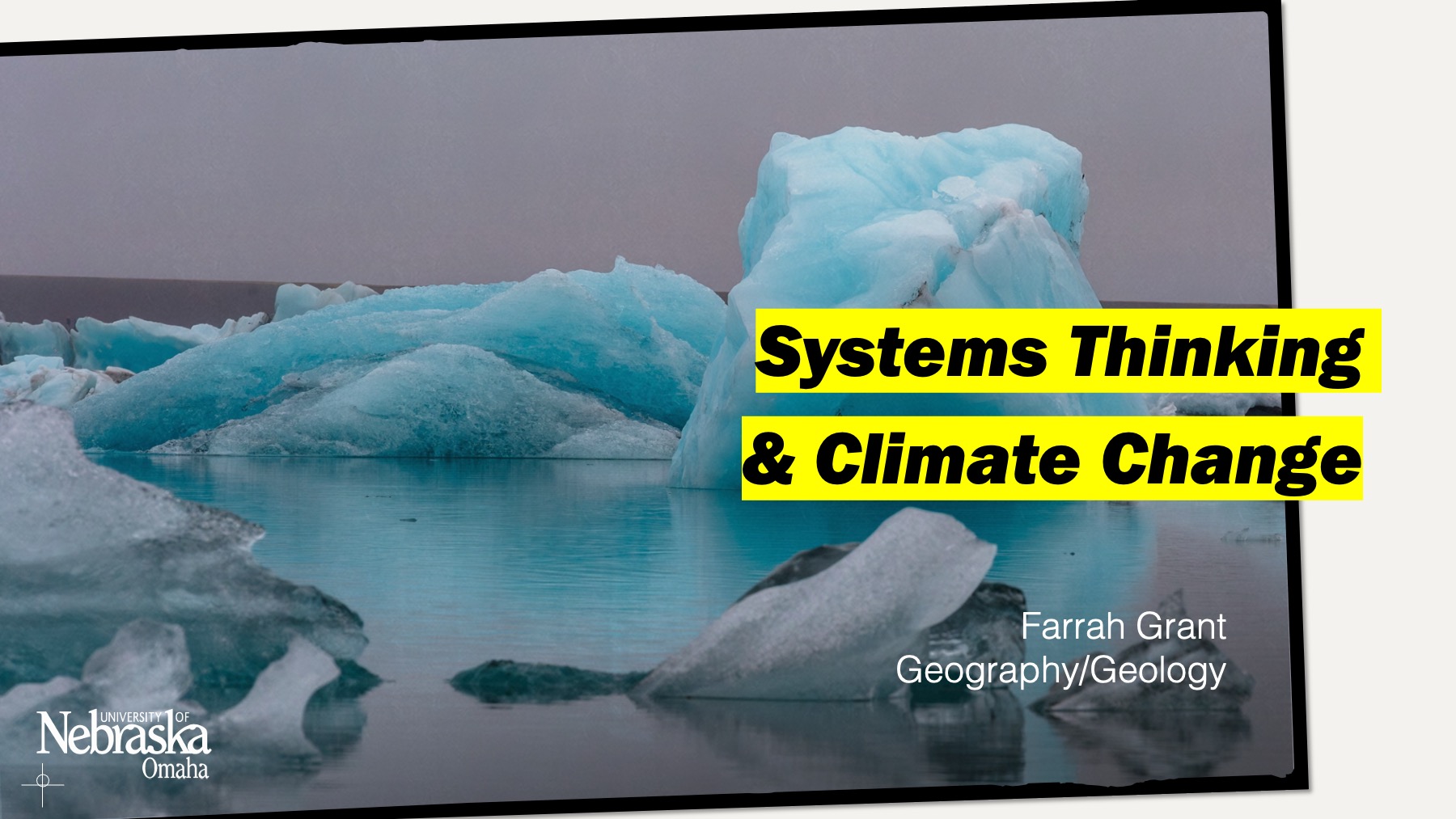
This presentation introduces the concept of systems thinking and demonstrates how it can be applied to understanding climate change impacts. It also discusses how to use systems thinking when designing solutions to complex issues, like climate change.
Sustainability
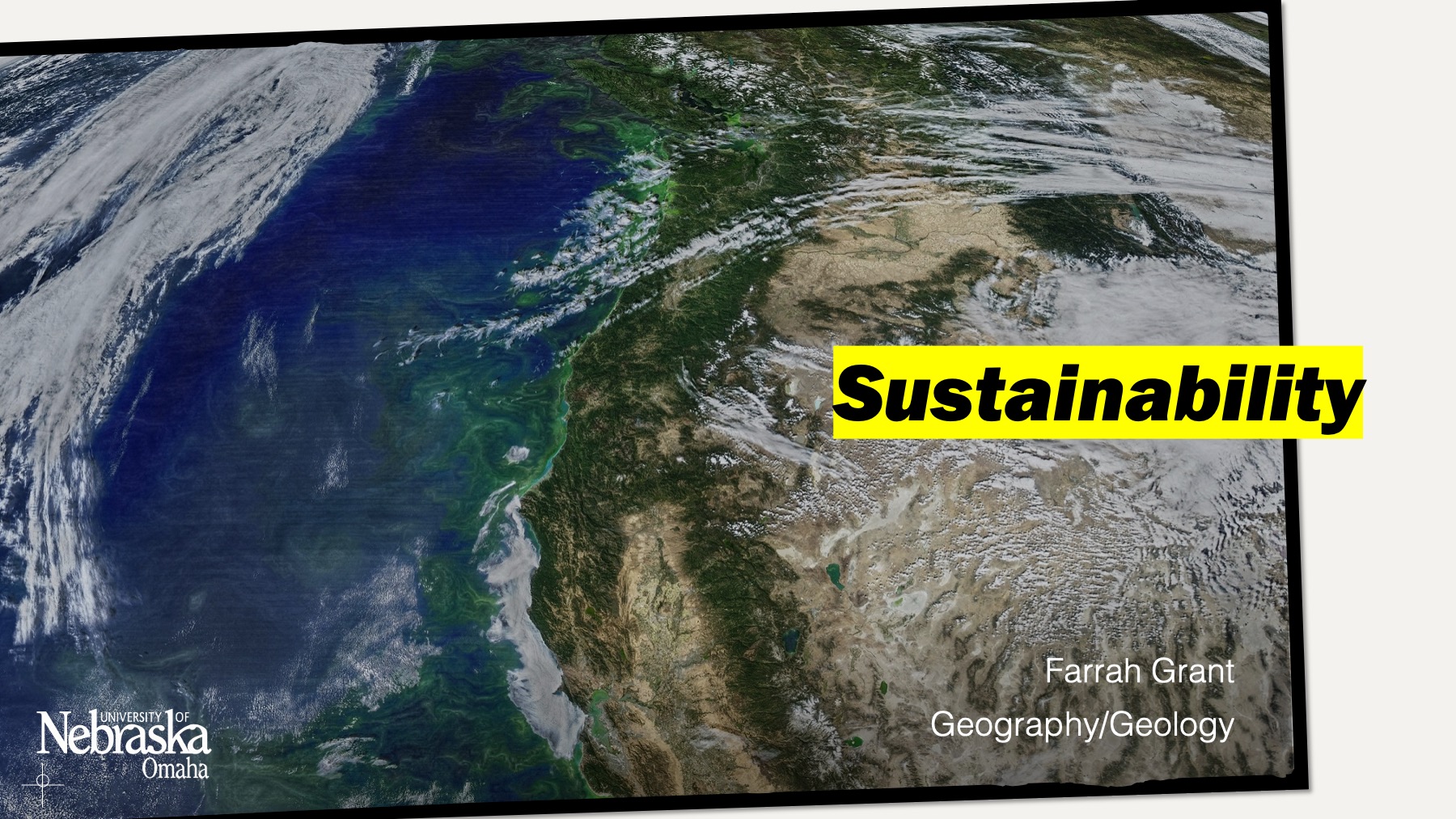
- Lecture Parts (1, 2)
- DLM Questions
This presentation introduces the basics of the academic field of sustainability and the topics covered within an introductory course. It also addresses strategies for teaching the subject within various academic courses.
Climate Justice
This presentation explores who is most responsible for climate change and how the loss and damages from climate change are not felt equally. It also discusses how to achieve a “just transition” to green energy and addresses the topic of climate migration.
Climate Change Communications
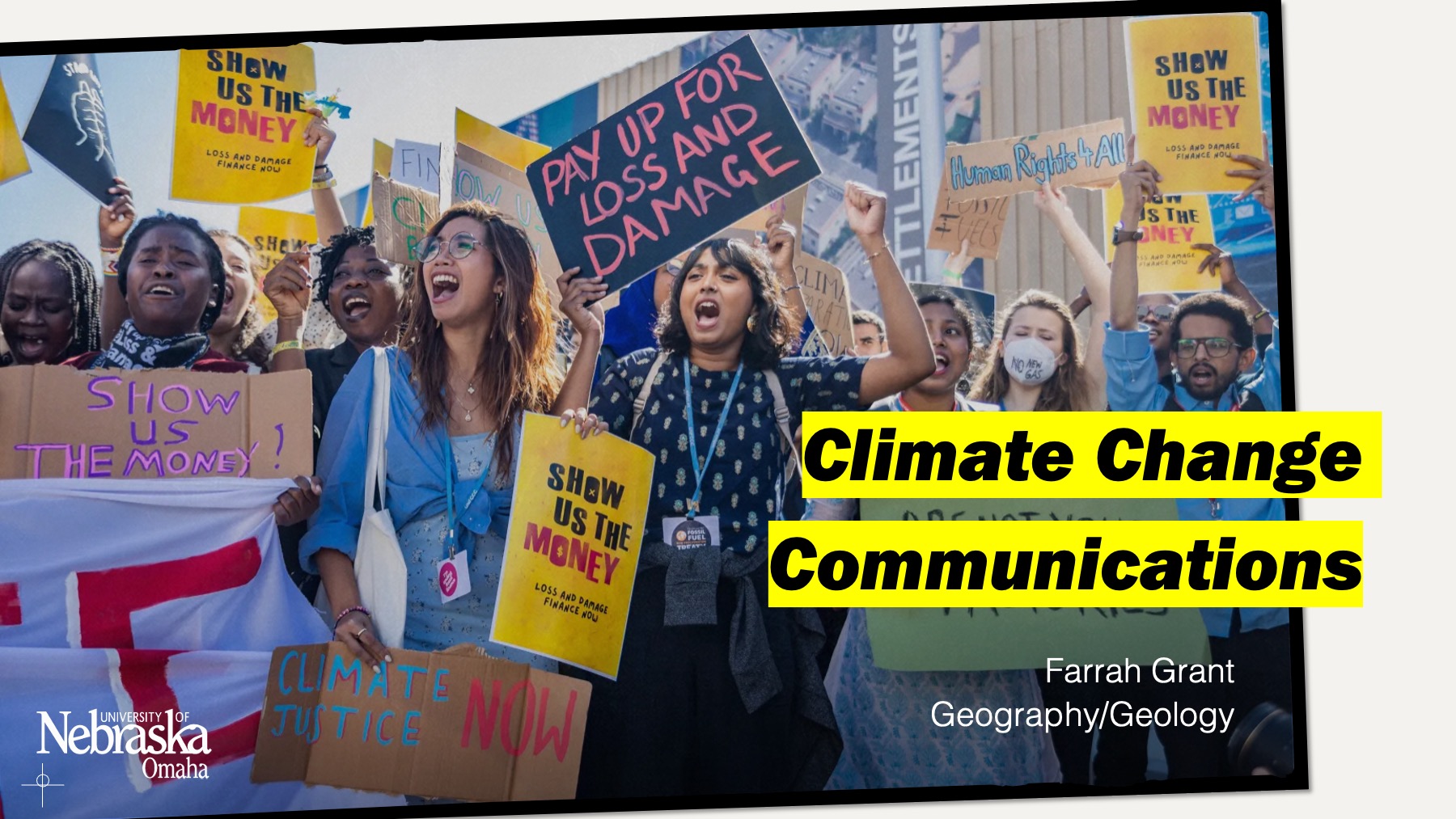
This lesson focuses on messaging related to climate action, including what strategies are most successful and the issues with disinformation.
Insights Into Climate Change
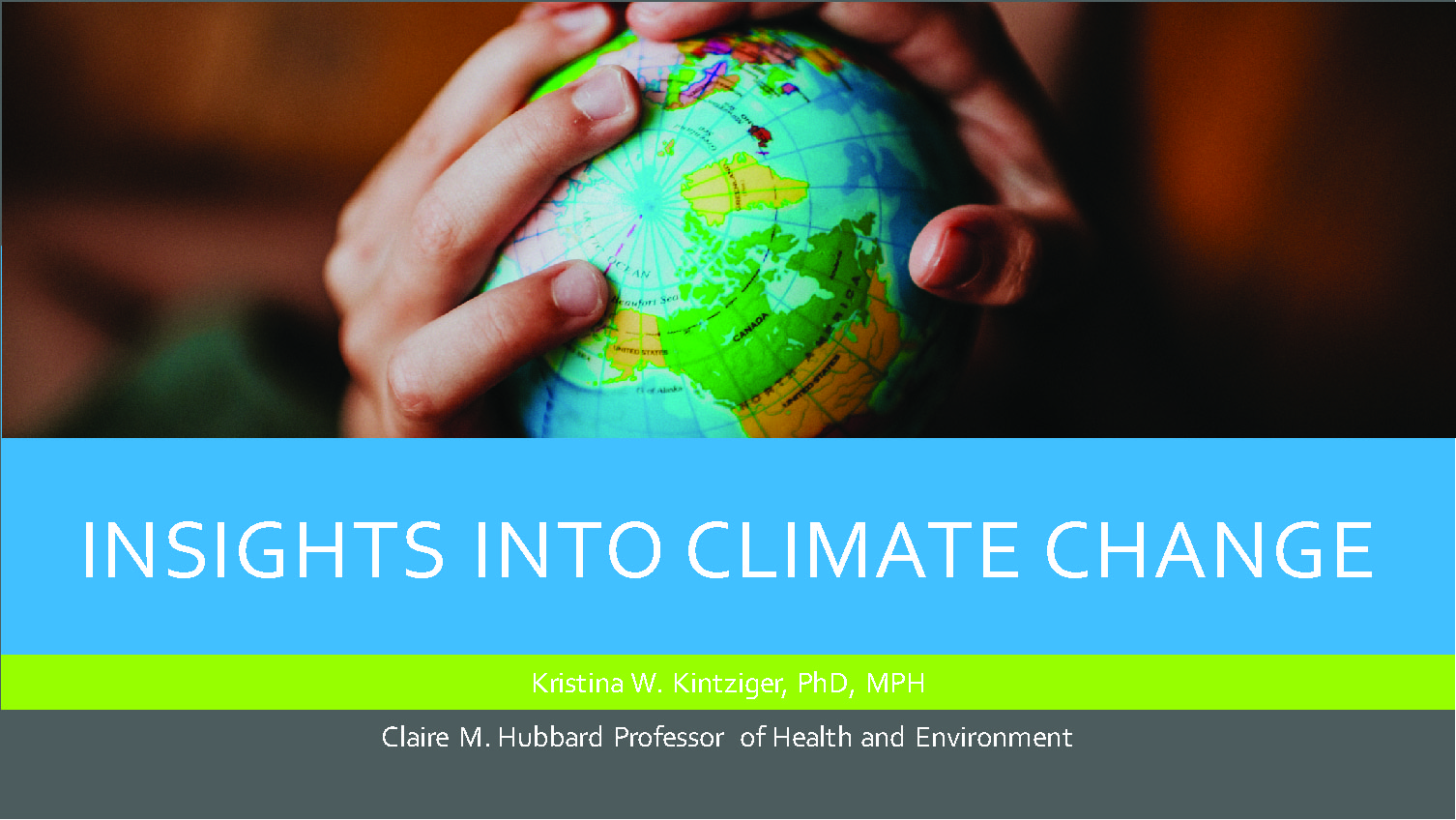
This course offers an overview of topics such as the use of sensors, systems engineering methods, and other novel methods can be used to advance our understanding of climate impacts on human health and community resilience.
Epidemiological Studies Related to Climate Change and Health
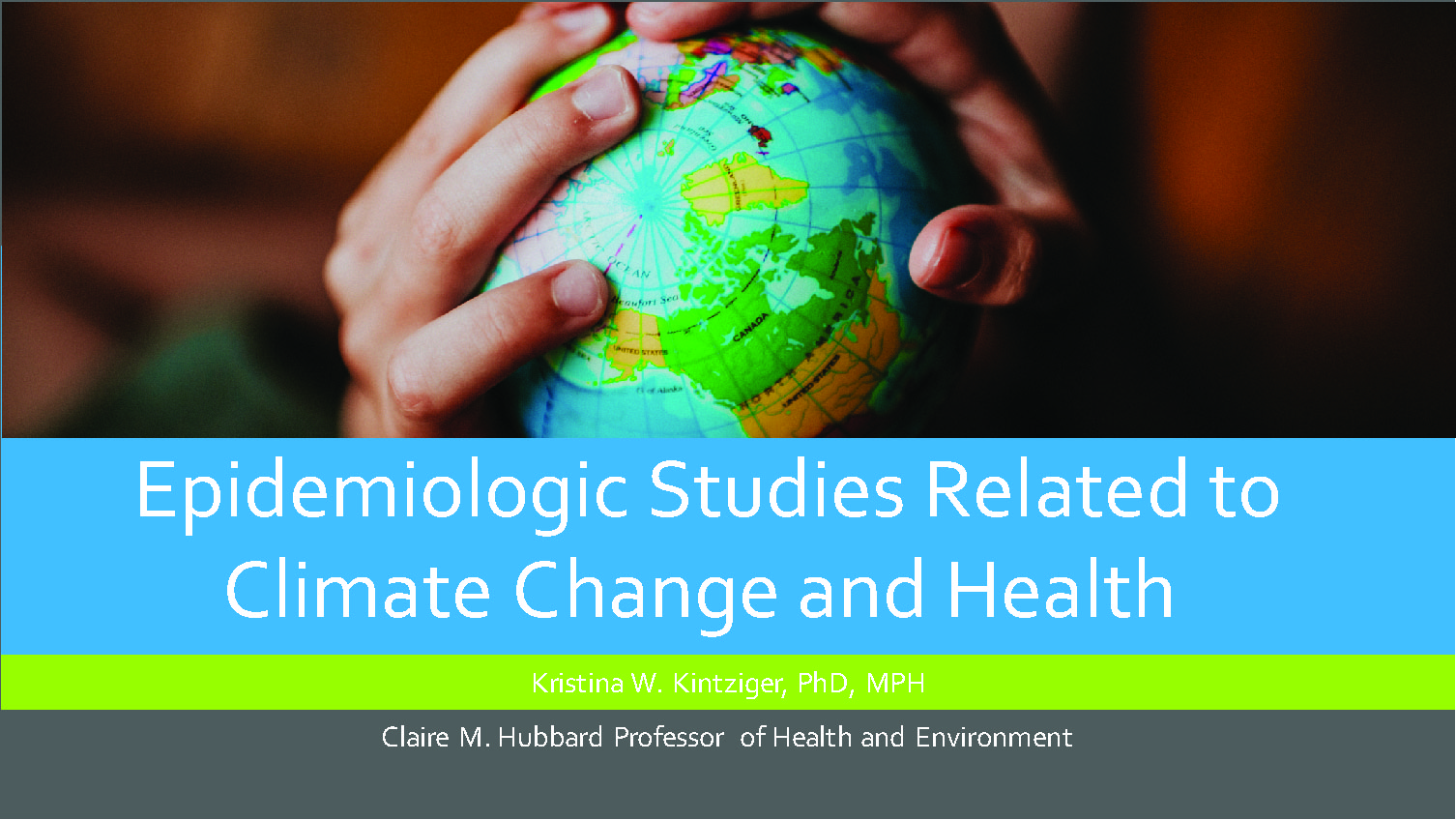
This course provides an overview of contemporary epidemiologic methods in addressing the direct and indirect effects of climate change on human health and well-being. This course provides a comprehensive overview with examples of case studies regionally and globally.
Spatial Analysis in Public Health Applications
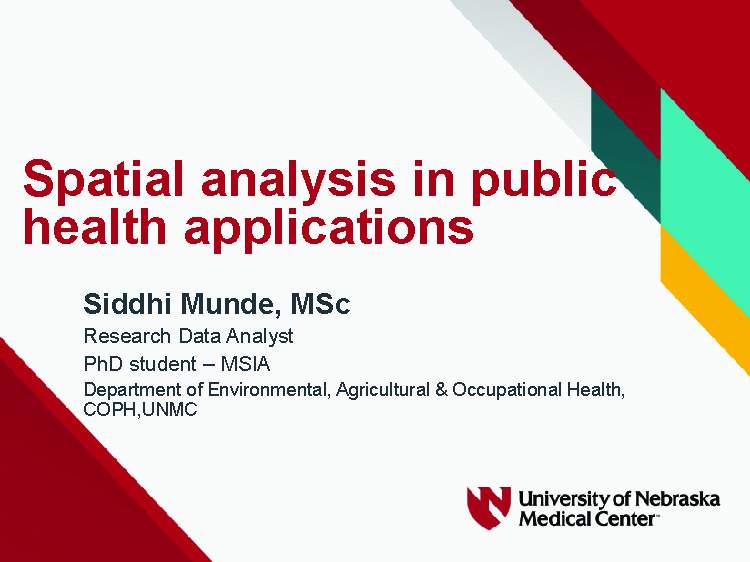
This course provides an overview of the applications of geographic information systems (GIS) in public health. This introductory course will help you understand spatial techniques used in GIS and health, including basic theory and concepts, with a focus on hotspot analysis.
Learning Management Systems
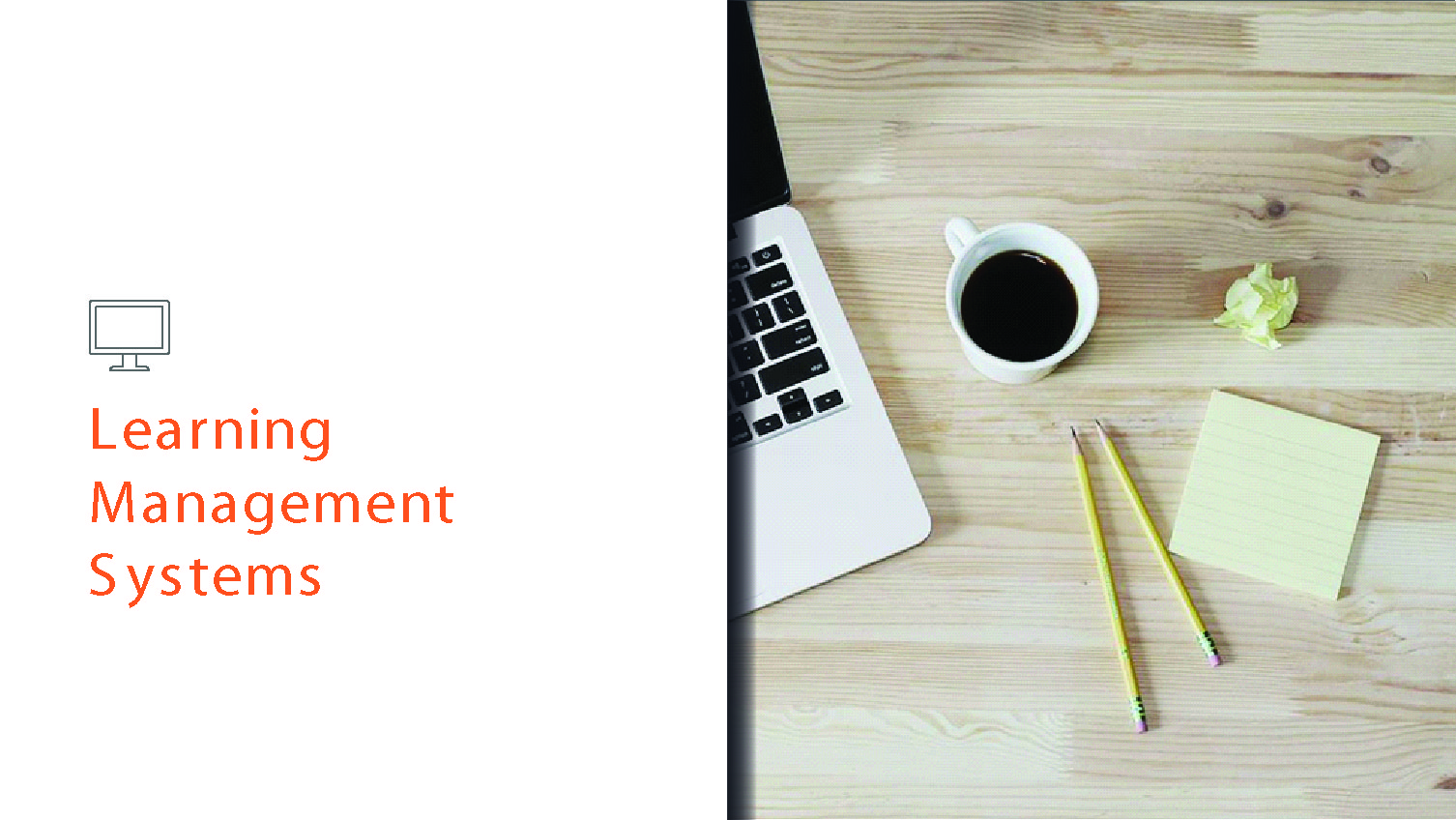
This lecture discusses the framework for online learning and some of the tools and tips for effective online learning and learning management systems.
Introduction to Climate Change Curriculum
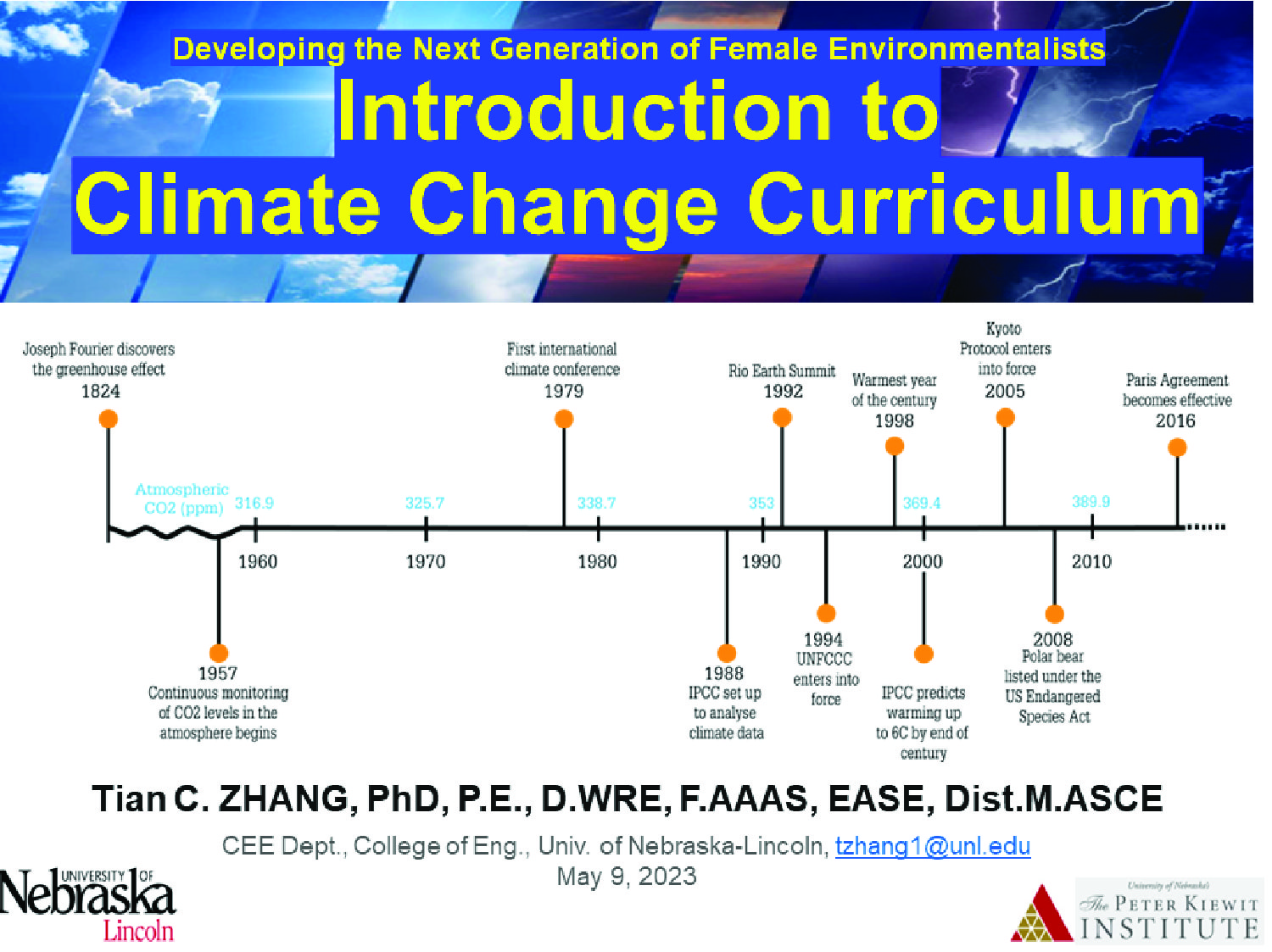
- Climate change across the university curricula/different disciplines
- The current status and practices in the world regarding how to teach climate change to students with different majors
- Ways of thinking, methods, strategies, rationales, and theoretical justifications for teaching climate issues at the university level
Training Outcomes
- Know the current status of the climate change curriculum
- Understand different course contents (modules/units) across the curriculum at college level
- Short-, mid-, and full-length courses
- Their combinations for students with different majors
- Know how to develop the curriculum for different majors
- Understand the related issues and ways to address them
Introduction to Climate Change
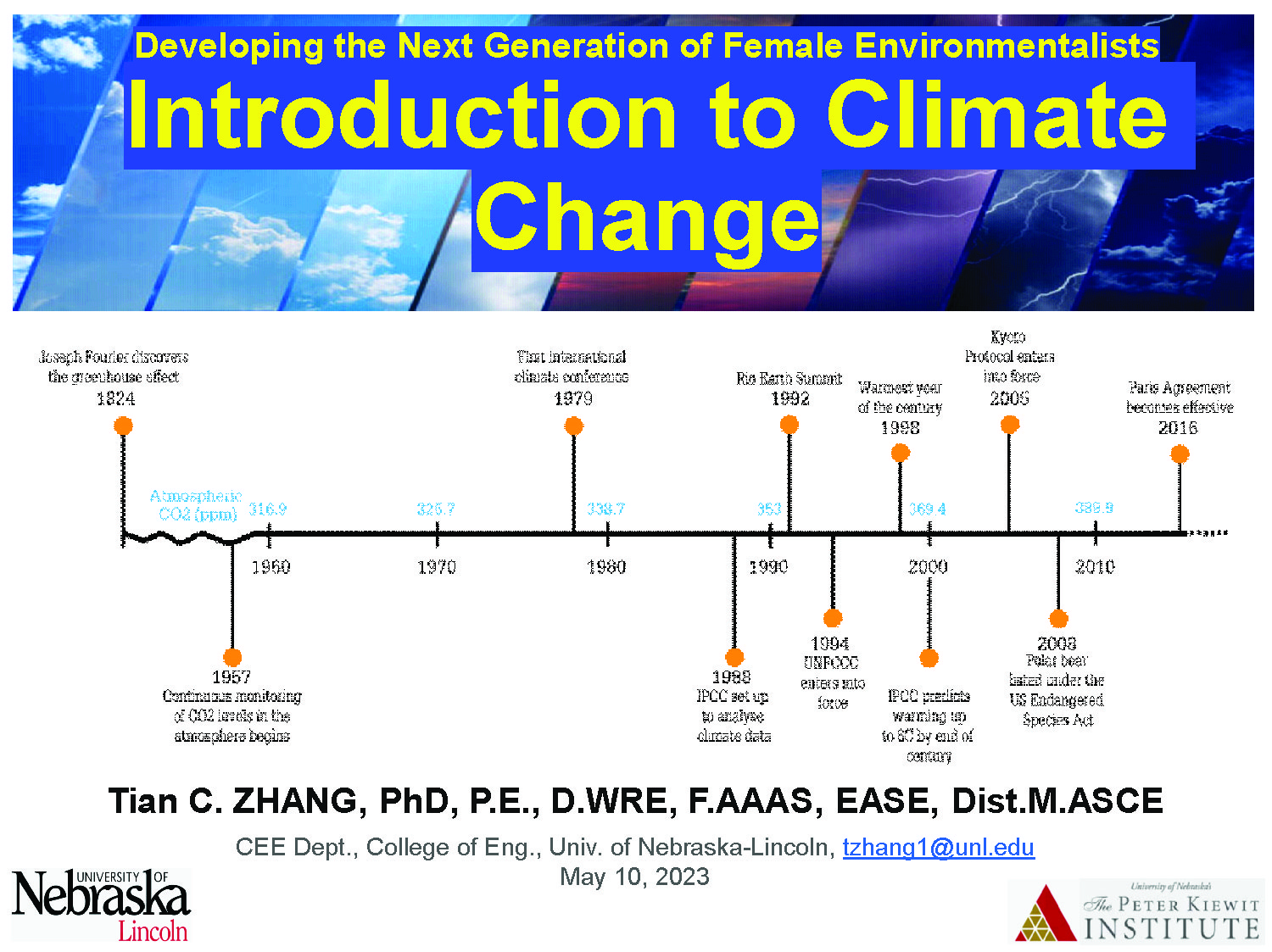
This course explained the pedagogy−how to teach the course:
- Ways of thinking, methods, strategies, rationales, and theoretical justifications for teaching climate issues at the university level
- Demonstrate how to teach some topics, i.e., greenhouse effects; impacts and how to cope with climate change
Training outcomes
- Find info (sources)
- Tailor the course materials as per audiences
- Develop a syllabus with major course contents
- Consider the interactions between the audience & instructor
- Address related issues
- Reflect different social, political, and cultural contexts
Special Topics of Climate Change Glaciers and Hazards
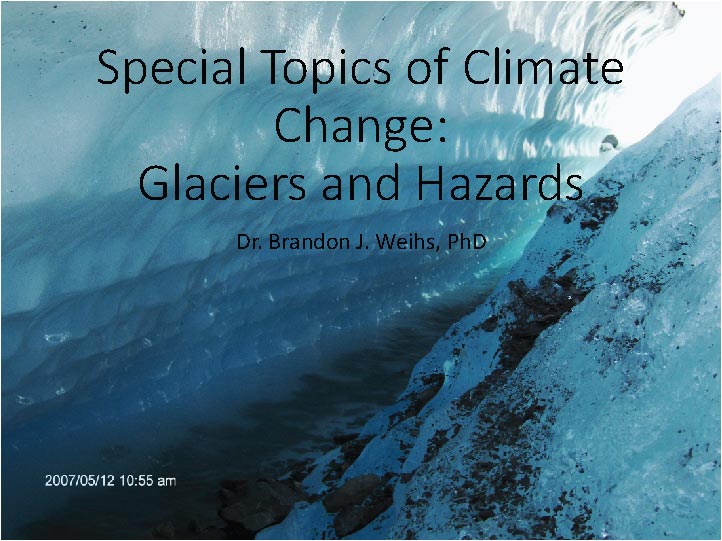
This lecture and associated question bank discuss the impacts of climate change on glaciers and natural hazards, with an emphasis on Southwest Asia (especially Afghanistan and Pakistan).
Climate Change, Water Scarcity, Resources, and Pollution
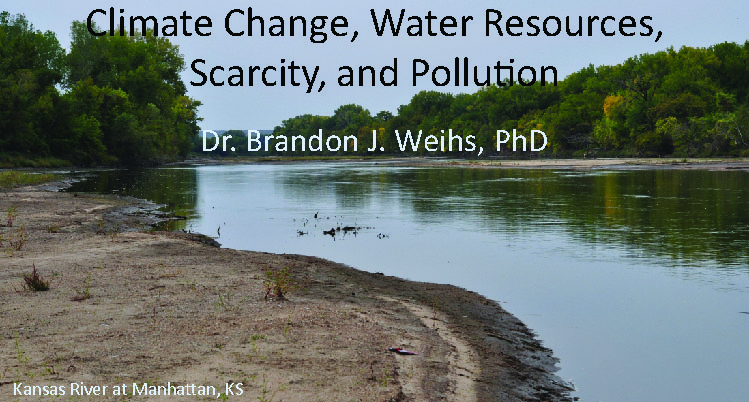
This lecture and associated question bank discuss the impacts of climate change on water scarcity, water resources, and water pollution with an emphasis on Southwest Asia (especially Afghanistan and Pakistan).
